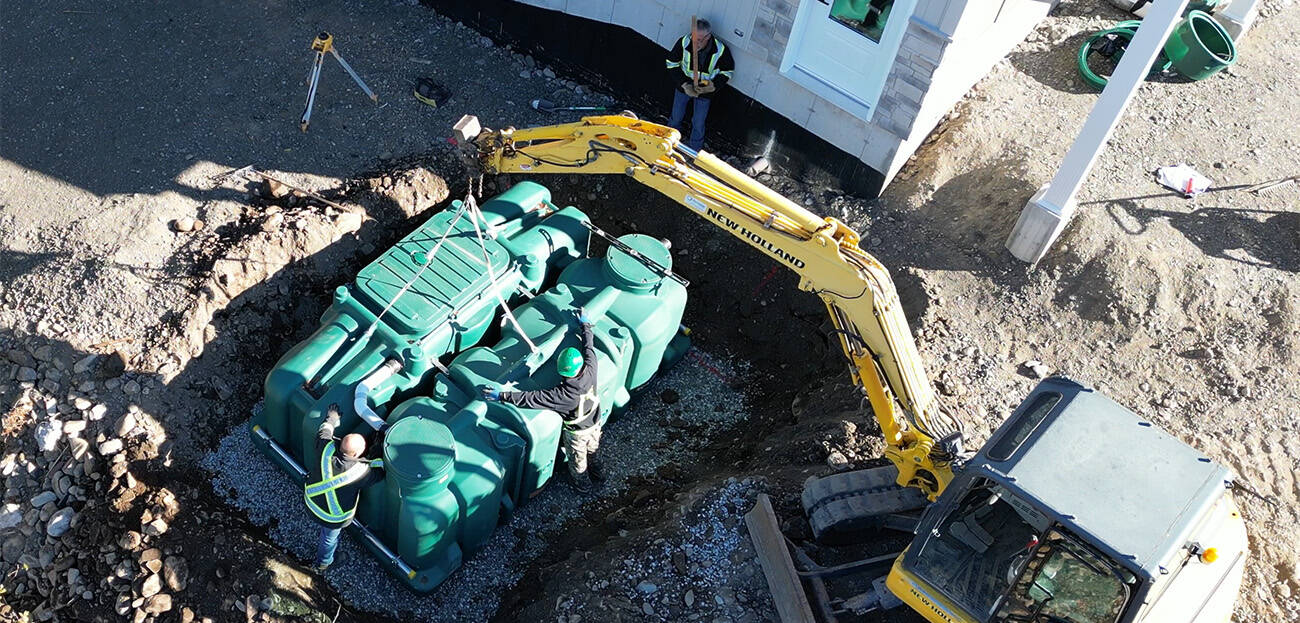Septic or public sewer: Which is better?

If you live in a rural area, an on-site septic system may be your only option to treat wastewater. If you live in a more populated region, your home is likely already connected to your municipal sewer.
But sometimes you have a choice.
Let's say you move to a community where sewer lines will be installed. You may be able to decide whether you want to connect to the public sewer or remain with your septic system.
In that case, you need to understand the differences between septic and sewer. You will also want to weigh the pros and cons of each system so that you can make an informed decision.
What is the difference between septic and sewer?
The difference between septic and sewer is simple. Septic treats your wastewater on site, and you are responsible for the cost to install and maintain the system. A sewer directs your wastewater to a centralized treatment plant operated by your local government and funded by fees and taxes.
New to the world of septic systems? Check out our comprehensive guide to discover what a septic system is and how it works.
Which is better for the environment: septic or sewer?

One major advantage of septic systems is that they are environmentally friendly when properly maintained. Septic systems require far less infrastructure than city sewers. Plus, they use less energy than municipal treatment plants and rarely rely on chemicals to remove wastewater pollutants.
Septic systems are also important tools to conserve your local water supply. They return treated effluent to your property, which replenishes groundwater and nourishes trees and other plants.
What are other advantages of septic systems?
Beyond the environmental advantages of septic tank systems, other benefits may include:
- Personal freedom
Septic systems allow you to live safely and independently far from the hustle and bustle of the city. Without them, your dream home in the country would not be possible.
- Installation costs
In many cases, it is more cost effective to install a new septic system than it is to connect municipal sewer lines to your property.
- Monthly costs
Septic systems can save you money each month. They are not linked to the municipal sewage system, so there are no monthly sewage or water bills to operate one on your property.
What are the disadvantages of septic systems?

One disadvantage of septic systems is that they may require you to change your habits. Systems are designed to treat a limited volume of wastewater each day. You may need to adjust your bathroom and laundry habits to avoid overloading your system, especially when company visits.
You also need to be mindful of what you put down your drains. Cooking oils and food scraps can clog septic pipes, including the ones in your septic drain field (also known as a leach field). Excessive use of harsh chemicals can kill the bacteria that treat wastewater in your system.
Beyond the need to adjust your daily habits, other disadvantages of septic systems may include:
- Maintenance costs
Local governments usually foot the bill for municipal sewer maintenance. The same cannot be said for septic systems. The cost of maintenance, including septic tank pump-outs every three to five years, is your responsibility as a homeowner.
- Progressive failure
Proper maintenance maximizes the lifespan of a septic system, but individual components do not last forever. As system parts deteriorate, sewage backups, slow drains, foul smells, and pooling water are possible. On the other hand, properties connected to city sewers rarely encounter these problems.
- Repair costs
When municipal sewers fail, local governments take on the cost of repairs to protect public health. But with a septic system, you are responsible for the cost of replacing broken parts, including lids, pipes, pumps, and tanks.
- Required space
Unlike public sewer systems, septic systems require a certain amount of dedicated space. To prevent damage to your system, you must not drive vehicles, build structures or pools, plant certain trees, or pile snow within that space.
In the end, is it better to have a septic tank or sewer?
Septic is better than sewer if the pros and cons suit your preferences.
Septic requires minimal infrastructure, it makes independent living possible in rural areas, and it comes with no monthly fees. By contrast, sewer is better equipped for periods of heavy use, and it requires little homeowner maintenance.

Get free advice you can trust
Looking for a new septic system? Need your old one inspected? Or just not sure where to start?
We're here to help! Send us a few quick details and we'll give you free advice and recommendations based on your needs.






